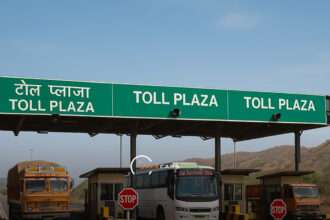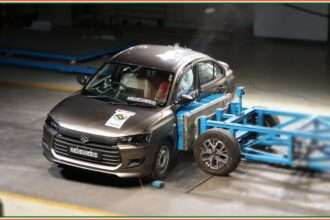Hyundai Motor India is leading the charge for enhanced automotive safety with a strategic three-pillar approach aimed at ensuring comprehensive safety features across its vehicle lineup. The company has recently announced its commitment to advancing safety technology, making it a pioneer in the Indian automotive market. This initiative encompasses the widespread adoption of Advanced Driver Assistance Systems (ADAS) and Blue Link connectivity features, contributing to safer and more connected driving experiences. By 2025, Hyundai aims to have 100% of its vehicles equipped with ADAS and Blue Link connectivity features.
The Three-Pillar Safety Strategy
1. Advanced Safety Features Across More Models: Hyundai will introduce advanced safety features like ADAS across a broader range of its vehicle models. This expansion will bring cutting-edge safety technology to a wider audience, enhancing driver and passenger safety.
2. Key Safety Features Available as Options: The company plans to offer key safety features such as Electronic Stability Control (ESC), Vehicle Stability Management (VSM), and Hill-Start Assist as optional features across its entire model range. These features have proven effective in preventing accidents and improving vehicle stability.
3. Standardization of Vital Safety Features: Hyundai will standardize essential safety features across all models and variants. This move ensures that critical safety components become a standard part of every Hyundai vehicle, raising safety standards across the board.
ADAS Integration and Expansion
Hyundai is actively integrating Advanced Driver Assistance Systems (ADAS) into its vehicle lineup, with ADAS already available in five models. By 2024, the company anticipates that 60% of its portfolio will feature ADAS. This commitment to ADAS technology is a significant step in democratizing advanced safety features in the Indian automotive market. By 2025, the goal is to make ADAS a standard feature in all Hyundai models.
One notable achievement in this journey is the Hyundai Venue, which became India’s most affordable SUV equipped with ADAS. This accomplishment underscores Hyundai’s dedication to making advanced safety features accessible to a broad range of consumers.
Connectivity Features for Enhanced Safety
Hyundai introduced Blue Link in-built Connected-Car Technology in 2019, offering advanced safety features such as stolen vehicle tracking, immobilization, geo-fencing, SOS, and emergency assistance. Currently, 80% of Hyundai’s portfolio offers the Blue Link option, and the company aims to achieve 100% penetration in the near future. These connectivity features enhance safety by providing real-time tracking and assistance services.
Rising Safety Standards for Indian Roads
India boasts one of the world’s largest road networks, with a significant increase in the length of national highways over the past eight years. However, this rapid development of road infrastructure has also seen a surge in the number of vehicles on the road. To address this challenge, Hyundai is committed to elevating vehicle safety levels in tandem with road development.
Hyundai’s “Safety First” approach has led to the introduction of numerous active and passive safety features in recent years. The company’s mission is to ensure safety for all, covering drivers, occupants, and pedestrians.
Standardization of Safety Features
As part of the safety initiative, Hyundai has equipped its entire lineup with three-point seat belts and seat belt reminders for all seats as standard features across all variants. Furthermore, Hyundai India is the first mass OEM to standardize six airbags across all models and variants. This commitment to safety is a significant milestone in Hyundai’s journey to enhance vehicle safety standards.
Conclusion
Hyundai Motor India’s commitment to advancing safety technology and connectivity features reflects its dedication to providing safer and more connected driving experiences for Indian consumers. The company’s three-pillar safety strategy, which includes expanding ADAS adoption and connectivity features, will contribute to raising safety standards across the Indian automotive landscape. As the initiative unfolds, Hyundai’s mission to ensure safety for all remains at the forefront of its efforts. With 65 safety features, a GNCAP 5-Star safety rating, and ongoing efforts to enhance safety, Hyundai aims to set new benchmarks in automotive safety and connectivity in India.




